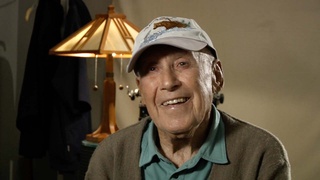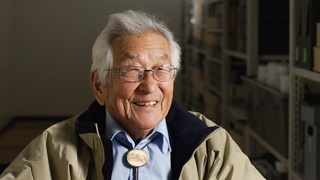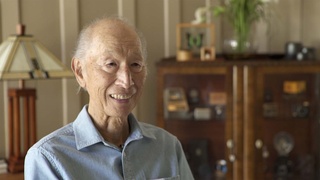Interviews
Laid off for being Canadian
I applied for U.S. government service as a... at army pay. U.S. army pay, which was considerably, far better than what I was making at the oil company. At the oil company, probably I was making about fifteen thousand a year -- a month. Whereas for, with the American thing, I was making oh, probably I was making about a hundred thousand a month. Japanese yen, yeah, or equivalent in dollars. So I worked there for about a year and a half, and then after the peace treaty, after the peace treaty, I was laid off because according to the peace treaty with, between Japan and the States, the only people that can work for the American army were U.S. citizens, not Canadian. So I got laid off, and a year after I got laid off, I worked as an interpreter for a Japanese company trying to land contracts with, contracts for the U.S. army. The work I was doing while I was with the U.S. army as their civilian employee was procurement of supplies for the Korean War.
Date: October 29, 2005
Location: Toronto, Canada
Interviewer: Norm Ibuki
Contributed by: Sedai, the Japanese Canadian Legacy Project, Japanese Canadian Cultural Center
Explore More Videos

Reception of Hamako by family
(1916 - 2013) Member of the U.S. Military Intelligence Service

Meeting Hamako in Japan
(1916 - 2013) Member of the U.S. Military Intelligence Service

Meeting Mr. Amano
(1916 - 2013) Member of the U.S. Military Intelligence Service

Marriage and Returning to US
(1916 - 2013) Member of the U.S. Military Intelligence Service

Generosity of the Italians
(1919 - 2015) Nisei who served in World War II with the 442nd Regimental Combat Team

Grandfather picked up by US Army
(b. 1952) Former banking executive, born in Hawaii

Painting murals and signs in the army
(b. 1938) Japanese Peruvian incarcerated in Crystal City

Since childhood, he has been interpreting for his father.
Professor of Law, University of Sao Paulo, Lawyer, Translator (b. 1948)
